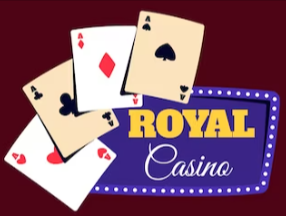I have been working in online casinos for years, and at rabonacasino-greece.gr, I have seen how Baccarat, especially the Punto Banco variant, fascinates players across Greece. The game seems simple at first glance, but beneath its elegant surface lies a complex interplay of probability, strategic choices, and psychological insight. Baccarat is distinctive because players do not control the drawing of cards; outcomes are largely predetermined by strict rules, yet the decisions you make in betting, timing, and bankroll allocation can significantly affect your engagement and satisfaction.
Punto Banco is the most common Baccarat variant in Europe and online casinos. The game pits the Player hand (Punto) against the Banker hand (Banco), with the objective being to bet on the hand you believe will achieve a total closest to nine. Players can also wager on a tie, though this carries higher risk and higher payouts. Each hand is dealt from a standard 52-card deck, often multiple decks shuffled together to prevent predictability. Card values are unique: tens and face cards count as zero, aces as one, and all other cards retain their face value. Only the last digit of the total is considered, so sums exceeding nine are reduced by dropping the tens digit-for example, a 7 and 8 totaling 15 becomes 5.
Betting Options and Payouts
Before cards are dealt, you place a bet on either the Player hand, Banker hand, or a Tie. The Player bet generally pays even money. The Banker bet is slightly more advantageous statistically, paying slightly less than even money because of a commission on winning Banker bets, typically around 5%. Betting on a Tie can pay 8:1 or 9:1, depending on the casino, but carries a high house edge. Understanding these payouts and their implied probabilities is essential for managing risk and expectations.
Baccarat’s appeal comes from its simplicity and fast pace. A single round can be completed in seconds online, which contrasts with more intricate poker variants or multi-player table games. However, simplicity does not equate to triviality. Experienced players analyze patterns in Banker and Player wins, streaks, and shoe outcomes, though it is critical to remember that each hand remains statistically independent.
Card Dealing Rules
In Punto Banco, the dealer always follows rigid rules for drawing cards. The Player hand is evaluated first. If the total is 0–5, the Player draws a third card; if it is 6 or 7, the Player stands. A total of 8 or 9 is considered a natural, and no further cards are drawn.
The Banker’s drawing rules are more complex because they depend on the Player’s third card. If the Player stands with two cards, the Banker draws on totals of 0–5 and stands on 6 or 7. If the Player draws a third card, the Banker’s decision is guided by a matrix: for example, if the Banker has a total of 3 and the Player’s third card is 8, the Banker stands; if the Player’s third card is 2, the Banker draws. This complex system ensures that outcomes are non-random while maintaining mathematical fairness over multiple rounds.
Understanding Totals and Scoring
Baccarat’s totals are calculated by summing card values and considering only the last digit. For instance, a hand with a 7 and 6 sums to 13, which counts as 3. This unique scoring system creates subtle strategic implications: the presence of high cards or face cards may have less impact than intuition suggests. Learning to quickly calculate totals and anticipate Banker actions is an important skill, even if it is largely automated online.
Game Flow and Pacing
Each round begins with bets being placed, followed by the dealing of two cards to Player and Banker hands. The third card rule is applied automatically according to pre-defined algorithms. Online platforms like rabonacasino-greece.gr provide a visual representation of the cards, sometimes including animations or sound cues that enhance engagement. The automated nature of card drawing means the player’s primary role is in strategic betting, bankroll management, and observation.
Betting Strategy and Bankroll Management
While you cannot control card draws, you can manage risk by allocating your bankroll effectively. Beginners often treat Baccarat as a luck-driven game, placing large bets impulsively. I encourage a measured approach: divide your bankroll into units, determine a fixed bet per round, and adjust slightly depending on perceived streaks without chasing losses. Betting strategies such as flat betting, progressive increments, or pattern observation can enhance engagement, though it is essential to remember that no system can overcome the house edge in the long run.
Streaks and Pattern Observation
Many players attempt to track patterns of Banker and Player wins using scorecards, grids, or digital tracking tools. Common methods include following “roadmaps” that chart outcomes as bead plates, big roads, or small roads. While statistically, each hand is independent, these visual patterns provide cognitive engagement, allowing players to feel involved in decision-making. Recognizing streaks can guide minor adjustments in bet sizing or timing, though it does not guarantee predictive accuracy.
Tie Bets and Probability Considerations
The Tie bet is enticing due to its high payout, but its probability is low. The house edge on Tie bets is often over 14%, compared to approximately 1% for Banker bets. Novice players frequently underestimate this disparity. At rabonacasino-greece.gr, I have noticed that beginners benefit from understanding expected value and probability, focusing on bets that maximize long-term returns rather than high-risk, high-reward outcomes.
Card Counting Myths
Unlike blackjack, card counting in Baccarat is generally ineffective due to multiple decks and the automated dealing process in online versions. While theoretically possible in single-deck shoe variations, most online casinos use 6–8 deck shoes with frequent reshuffling. The third card rules further reduce predictability, making card counting impractical. Players benefit more from strategic bet management and psychological discipline than attempting to anticipate outcomes.
Advanced Banker Strategies
Though the Banker hand automatically follows drawing rules, understanding them provides an advantage in predicting potential outcomes. Experienced players mentally simulate the Banker’s third card responses based on the Player’s total, informing bet decisions. This cognitive exercise engages analytical skills and enhances overall game enjoyment.
Live vs RNG Baccarat
Online casinos, including rabonacasino-greece.gr, offer both live dealer and RNG-based Baccarat. Live dealer games replicate the experience of a physical table, including visible shuffling, real-time dealer interactions, and social engagement. RNG versions allow faster play, automated dealing, and analytical observation of outcomes without the social component. Choice depends on personal preference: immersive realism versus efficiency and practice.
Psychological Aspects and Player Behavior
Baccarat’s psychological appeal lies in its combination of simplicity, speed, and perceived control. Players often experience excitement from observing trends, anticipating streaks, and choosing bets. Maintaining discipline and avoiding emotional betting is crucial. Successful players develop patience, control impulses, and focus on long-term expected outcomes rather than short-term variance.
Common Mistakes
Novices frequently make errors such as:
- Overbetting on Tie bets due to high payout allure.
- Chasing perceived streaks with aggressive betting.
- Ignoring bankroll limits and session pacing.
- Misinterpreting outcomes as predictive rather than independent events.
Avoiding these pitfalls ensures a more enjoyable and sustainable experience.
Responsible Gaming
Responsible play is essential. Players should set session limits, define bet ranges, and recognize when to pause. Online platforms like rabonacasino-greece.gr provide tools for monitoring activity, self-exclusion, and deposit restrictions. Combining responsible gaming with strategic betting enhances both enjoyment and safety.
Baccarat Etiquette and Multiplayer Interaction
Live dealer Baccarat tables often host multiple players. Understanding basic etiquette-waiting your turn, respecting dealer instructions, and interacting politely-enhances social engagement. Multiplayer tables can create a sense of community, while still maintaining individual decision-making autonomy.
Post-Launch Monitoring and Analytics
Online casinos track outcomes, betting patterns, and engagement metrics to refine Baccarat offerings. Analytics inform interface improvements, feature adjustments, and promotional strategies. Players who monitor their own patterns can similarly refine strategies, focusing on consistency and disciplined bet sizing.
Conclusion
Punto Banco Baccarat at rabonacasino-greece.gr is deceptively simple yet rich in subtle strategy and psychological depth. While players cannot control card draws, mastering the rules, understanding probabilities, observing Banker dynamics, and managing bankroll effectively are essential skills. Beginners benefit from structured learning, disciplined betting, and observing patterns, while experienced players refine strategies involving advanced bet management, pattern analysis, and cognitive simulation of outcomes.
The elegance of Baccarat lies in its combination of simplicity, speed, and strategic subtlety. By approaching the game with discipline, awareness, and a clear understanding of expected value, players in Greece can enjoy a deeply engaging and potentially profitable casino experience. The interplay of probability, psychology, and bankroll management creates a layered and compelling game that rewards both attention and patience.

